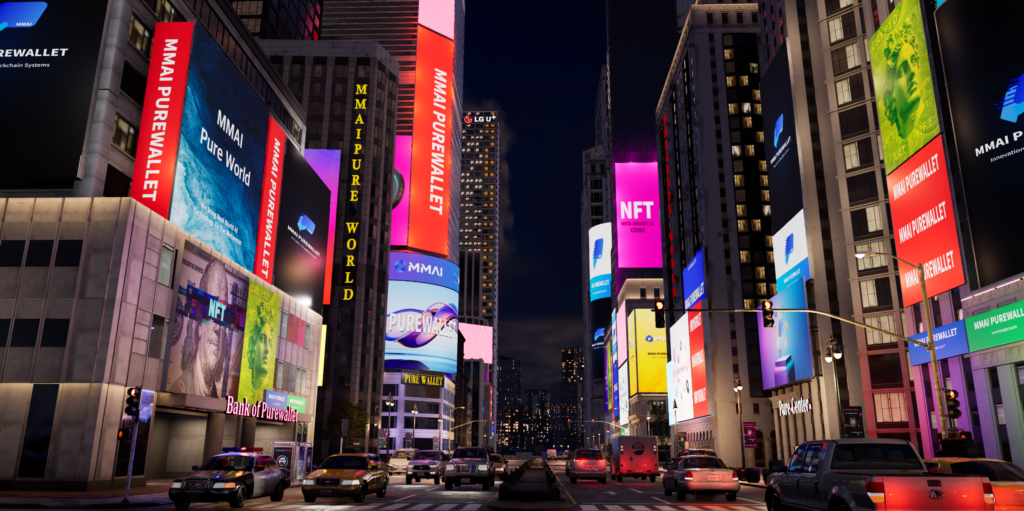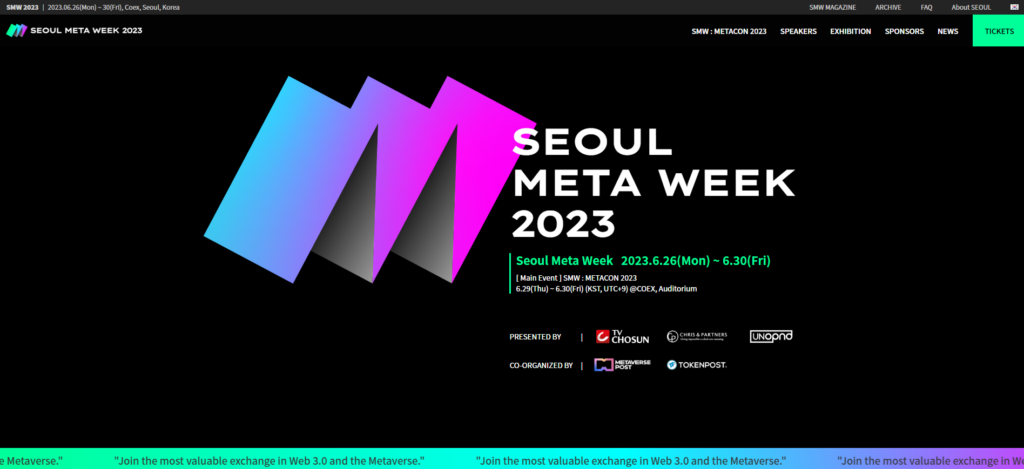The concept of a “metaverse” has been around for several decades, but it has recently gained more attention due to advancements in virtual reality, augmented reality, and blockchain technology. The term “metaverse” refers to a shared virtual space where users can interact with a computer-generated environment and with each other in real-time.
The metaverse is essentially a convergence of virtual and physical reality, where users can engage in a variety of activities such as gaming, socializing, shopping, and even working. It has the potential to become a fully immersive, persistent world where people can create and experience their own digital content, as well as participate in a range of experiences and transactions.
The metaverse is not yet a fully realized concept, but companies like Facebook, Roblox, and Epic Games are investing heavily in its development. As the technology continues to improve, it is likely that we will see a greater number of metaverse applications and use cases in the future.
Table of Contents
How Can People Use Metaverses?
There are many ways that people can use metaverses, and the possibilities are still expanding as the technology continues to develop. Here are a few ways that people can use metaverses:
Socializing
Metaverses offer users the opportunity to socialize and interact with other people from around the world. This can be especially valuable for people who are isolated or have limited opportunities for social interaction in the physical world.
Gaming
Many metaverses have gaming features that allow users to play and create their own games. This can be a fun and engaging way to pass the time and connect with others who share similar interests.
Shopping
Some metaverses offer virtual marketplaces where users can buy and sell virtual goods and services. This can be a useful way to monetize creative talents and generate income in the virtual world.
Education
Some metaverses offer educational content, including classes and lectures. This can be a valuable resource for people who are looking to learn new skills or explore new topics.
Work
As the technology develops, it is possible that metaverses could become a platform for remote work, with users collaborating and communicating in virtual spaces. This could allow for greater flexibility and efficiency in the workplace, as well as the ability to work with colleagues from around the world.
Entertainment
Many metaverses host concerts, movie screenings, and other types of events that provide entertainment for users. This can be a fun and engaging way to experience cultural events and performances from around the world.
Top Examples of Metaverse:
There are several metaverses that currently exist, each with their own unique features and user communities. Here are a few examples:
Second Life

Second Life is one of the longest-running and most well-known virtual worlds, Second Life was launched in 2003 by Linden Lab. It allows users to create their own avatars and engage in a wide range of activities, including socializing, gaming, and shopping. Users can buy virtual goods and services using Linden Dollars, the platform’s virtual currency.
https://secondlife.com/
Decentraland

Decentraland is a decentralized virtual world that uses blockchain technology to enable ownership of virtual land. Users can buy, sell, and trade virtual land using the platform’s native cryptocurrency, MANA. Once they own land, users can create and monetize their own content, including games, experiences, and virtual assets.
https://decentraland.org/
Roblox
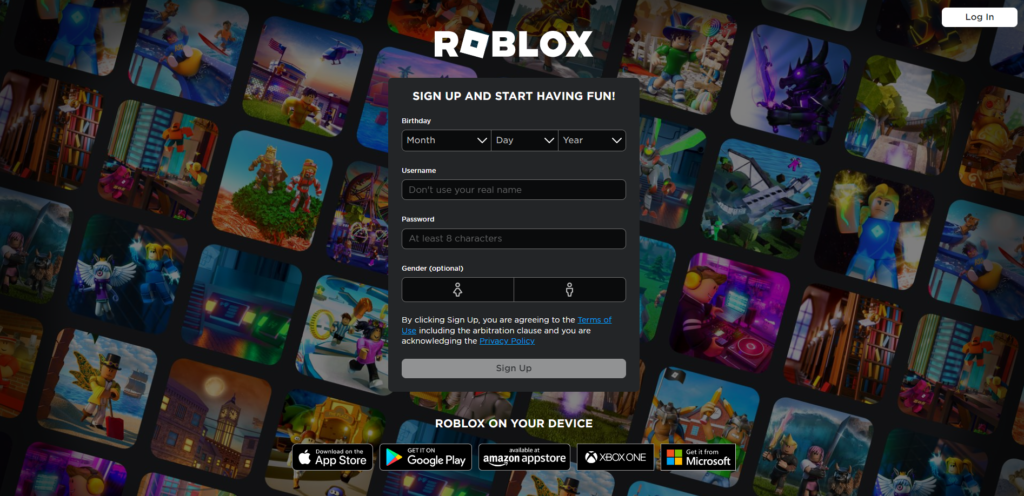
Roblox is a massively popular gaming platform that allows users to play and create their own games. It has a large user community that has created a wide variety of games, including role-playing games, simulators, and puzzle games. Roblox also offers a wide range of virtual items and avatar customization options that users can purchase using the platform’s virtual currency, Robux.
https://www.roblox.com/
VRChat
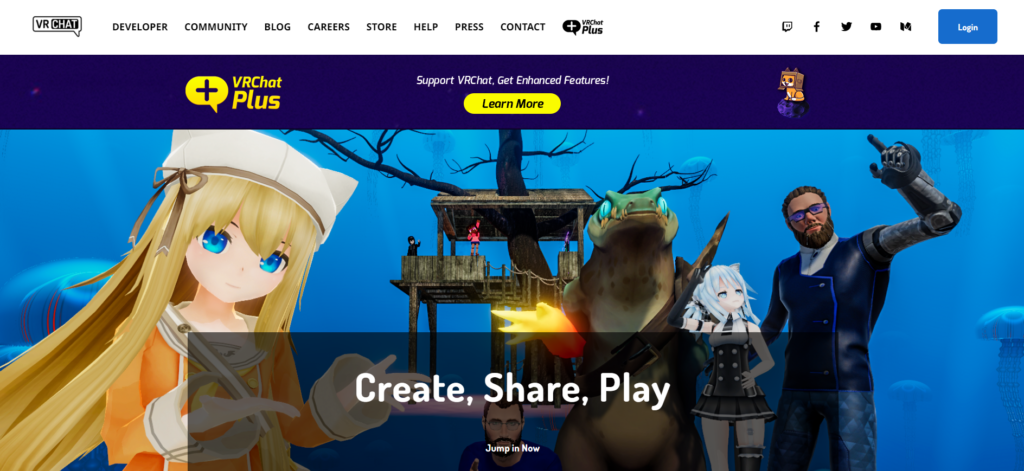
VRChat is a social platform that allows users to create and customize their own avatars, which they can use to explore a variety of virtual environments. It is designed to be used with virtual reality headsets, but it can also be used on desktop and mobile devices.
https://hello.vrchat.com/
Fortnite
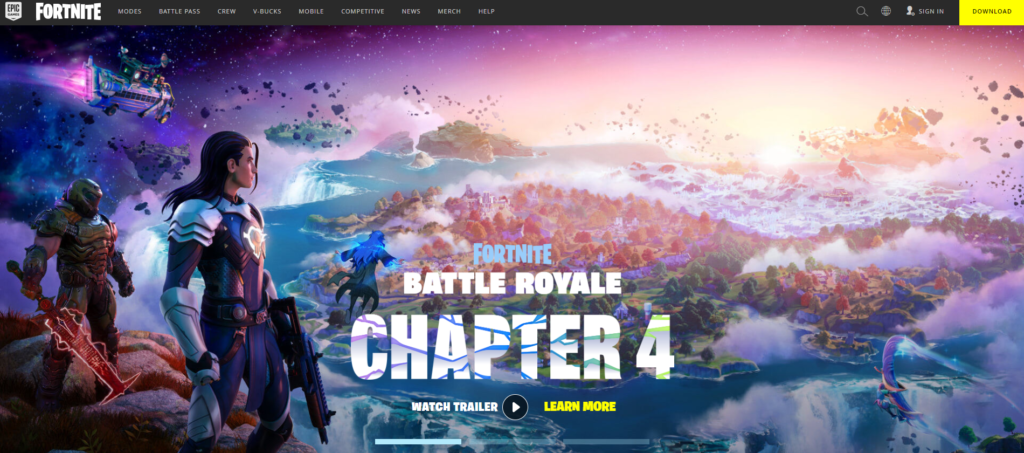
Fortnite is primarily known as a battle royale game, but it has also developed into a metaverse of sorts. The game has hosted a number of in-game events, including live concerts and movie screenings, that have attracted millions of users from around the world. Fortnite’s in-game purchases allow users to customize their characters and buy other virtual assets, such as emotes and skins.
https://www.fortnite.com/
MMAI Pure World: The Next Generation of Metaverses
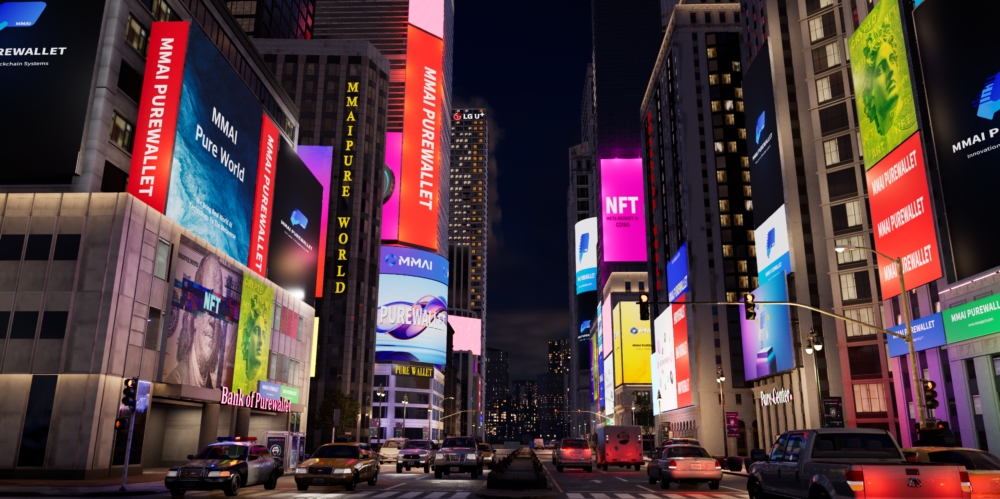




MMAI Pure World is a next-generation metaverse built on the Unreal Engine 5. Unlike other metaverses that focus mainly on entertainment, Pure World has a broader scope that includes business and commerce, as well as social and educational activities. The platform aims to create a virtual reality that is as real as possible, allowing users to engage in activities that go beyond leisure.
Real-world shops and businesses can set up virtual stores in Pure World, which users from all around the world can visit and shop at. MMAI plans to incorporate cryptocurrency payments and AI technology to enhance the inventory and shopping experience in the future. Additionally, the company is developing Oculus-style devices to provide a more immersive experience for users.
Empowering Users to Build Businesses on the Metaverse
One unique aspect of MMAI Pure World is that the platform will work with property owners to help them build a business of their choice within the metaverse. With the help of MMAI, users can develop their ideas into web3 technology and take advantage of the potential business opportunities within the metaverse. This approach sets Pure World apart from other metaverses and highlights the platform’s focus on utility and innovation.
MMAI Pure World also offers real estate NFTs, including the Key to the City NFT that grants ownership rights to property within the metaverse. Only 5002 NFTs are available for sale, and after the sale ends, all unsold NFTs will be burned, making it a one-time opportunity to own property in Pure World. The Key to the City NFT provides access to one free mint of the 12 exclusive properties, $100 in airdropped MMAI coins when PureChain is released, voting rights within Pure World, and access to secret locations within the metaverse.
In summary, MMAI Pure World represents a new and innovative way of interacting with the virtual world, providing multifunctional facilities and potential business opportunities to every meta-human. With a focus on providing a more realistic and immersive experience, MMAI Pure World is poised to revolutionize the way we perceive and interact with the metaverse.
How Can Metaverses be Monetized and How Can Users Earn Money via or Inside of Metaverse?
Monetization and earning money within metaverses is a significant factor driving the growth of this technology, and there are many opportunities for users to generate income within these virtual environments.
One way that users can monetize their activities within metaverses is by creating and selling virtual goods and services. For example, many metaverses allow users to create and sell digital art, clothing, accessories, and other virtual items that can be sold for real-world currency or the virtual currency used within the metaverse. Some metaverses have built-in marketplaces where users can buy and sell virtual items, while others rely on external platforms. In some cases, users can also earn commissions by referring other users to the platform or promoting specific products or services.
Another way that users can earn money within metaverses is by owning virtual land. Some metaverses, such as Decentraland and MMAI Pure World, allow users to buy and own virtual land. Users can then develop and monetize their land, such as by building virtual stores or creating experiences for other users to enjoy. This can be a valuable way to generate income within the metaverse.
Users can also earn money by offering their skills and services within the metaverse. For example, users could offer virtual event planning or design services, or provide technical support for other users.
As metaverses become more established, it is possible that virtual real estate could become a valuable asset in its own right. Just as physical real estate can be bought and sold for significant sums, it is possible that virtual land and properties could become highly sought-after, with users willing to pay large sums of money to own them.
Advertising is another potential revenue stream for metaverses. Brands could sponsor virtual events or create virtual storefronts to promote their products and services. As metaverses become more popular, it is likely that advertising will become an increasingly important source of revenue for these virtual environments.
Gaming is another area where users can earn money within metaverses. Many metaverses offer gaming features, and users can earn money by creating and selling their own games or by competing in tournaments and winning prizes. Some metaverses also allow users to earn rewards for completing in-game tasks or achievements, which can be redeemed for virtual goods or real-world currency.
Finally, some metaverses offer users the ability to earn royalties from their creations, such as music, videos, or other digital content. This can be a valuable source of passive income for creators and incentivize them to continue producing high-quality content.
As metaverses continue to evolve and gain popularity, it is likely that we will see many new and innovative ways for users to monetize their activities within these virtual worlds. However, it is important for users to carefully consider the terms and conditions of each platform and ensure that they are aware of any fees or revenue-sharing arrangements before engaging in monetization activities.
Is Metaverse a Future for Humans, or Will it Fall as Unwanted Technology?
The development and adoption of metaverses raise complex philosophical and ethical questions about the role of technology in society. While the potential benefits of metaverses are numerous, there are also valid concerns about the impact they could have on individuals and society as a whole.
For example, some critics argue that the rise of metaverses could lead to increased isolation and disconnection from the physical world, with individuals retreating into virtual spaces instead of engaging with their communities and the natural world. Others are concerned about the potential for addiction, as users become increasingly immersed in the metaverse and struggle to disengage from virtual activities.
There are also valid concerns about privacy and data security, as users share personal information and engage in financial transactions within virtual environments. The emergence of a virtual economy outside of traditional financial systems raises questions about economic inequality and access, as some users may have more resources and opportunities to monetize their activities within the metaverse than others.
Ultimately, the future of metaverses and their impact on society will depend on how they are developed and implemented. It is important for developers and users to be mindful of the potential risks and challenges associated with this technology, and to work towards creating a responsible and ethical framework for its use.
Final Thought
In conclusion, the metaverse is an exciting development that has the potential to transform our interactions with digital environments and with each other. However, it also raises complex ethical and philosophical questions that must be carefully considered as the technology continues to evolve. To ensure that the metaverse is developed and implemented responsibly, developers and users alike must work together to create a framework that balances the potential benefits with the risks and challenges. By doing so, we can pave the way for a future where the metaverse enhances, rather than detracts from, our physical and social experiences.
DISCLAIMER
Disclaimer: The information in this article is provided for general informational purposes only. All information is based on our knowledge and research at the time of writing. The views and opinions expressed in this article are those of the authors and do not necessarily reflect the official policy or position of any company, organization, or individual. The authors make no representations or warranties of any kind, express or implied, about the completeness, accuracy, reliability, suitability or availability with respect to the information contained in this article for any purpose. Any reliance you place on such information is therefore strictly at your own risk. In no event will the authors be liable for any loss or damage including without limitation, indirect or consequential loss or damage, or any loss or damage whatsoever arising from loss of data or profits arising out of, or in connection with, the use of this article.
ABOUT AN AUTHOR
BusyFox SEO is a friendly family-owned digital marketing agency that specializes in helping businesses achieve success online. With a focus on customer success, the BusyFox team has been helping clients improve their online presence and grow their businesses for over 3 years.
Led by a team of experienced digital marketing professionals, BusyFox offers a range of services, including SEO, PPC, social media management, and web design. The agency prides itself on its personalized approach, working closely with each client to develop a customized strategy that meets their unique needs and goals.

A Future of Metaverse Reality Getting More Real as never before
As technology continues its relentless march forward, the future of the Metaverse is becoming more tangible than ever before, thanks to groundbreaking innovations from Disney

PureWorld a Metaverse of the Future
Table of Contents As technology continues to advance, the concept of the metaverse is becoming increasingly popular. The metaverse is a virtual world where people

The Potential to Invest in Metaverse Projects
Table of Contents The metaverse concept has been around for several years, but it has recently gained significant attention. It is a virtual world where
